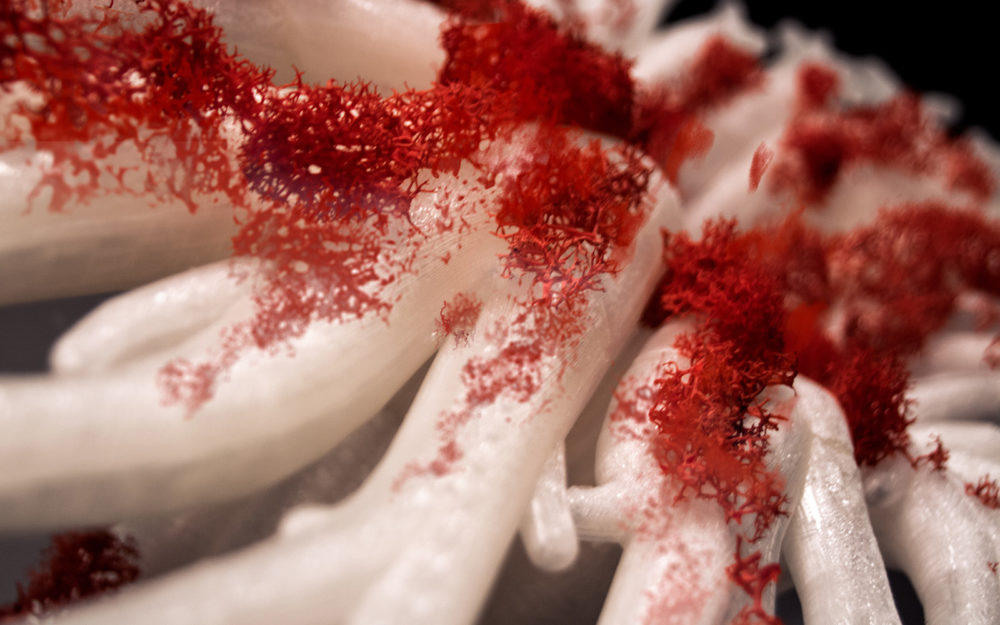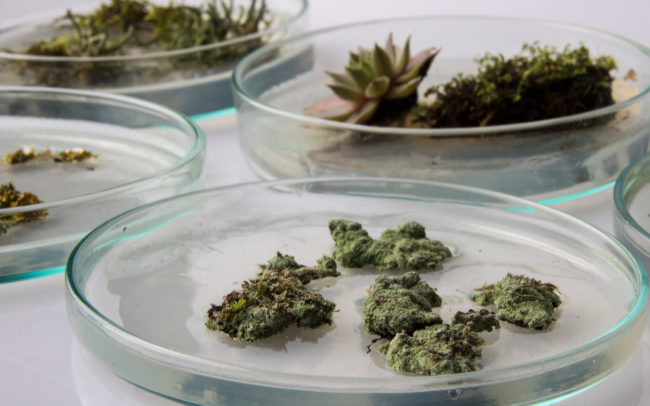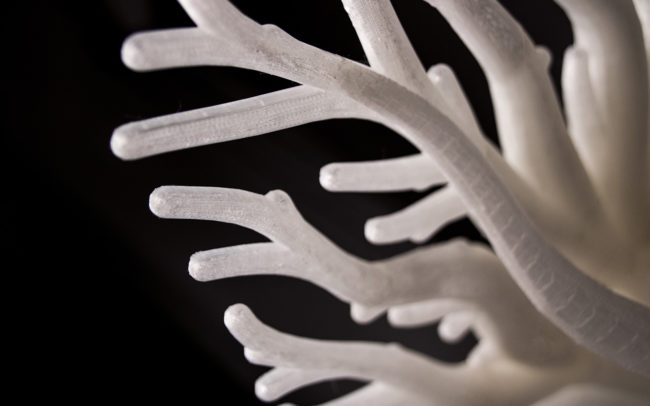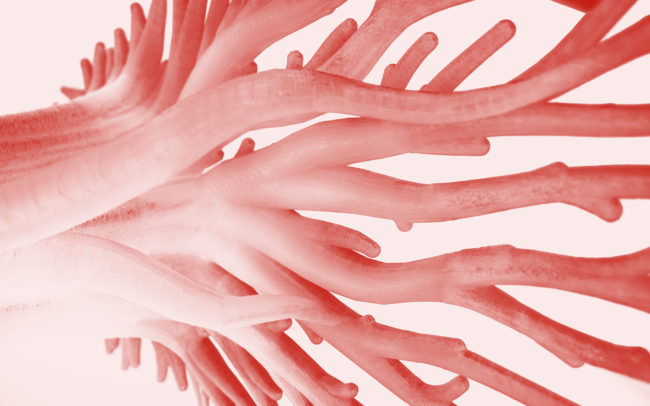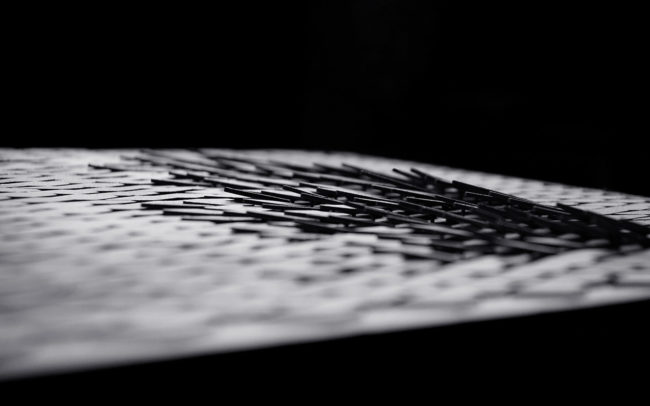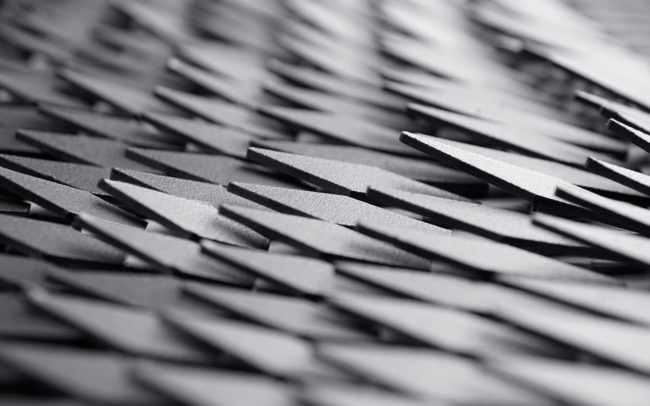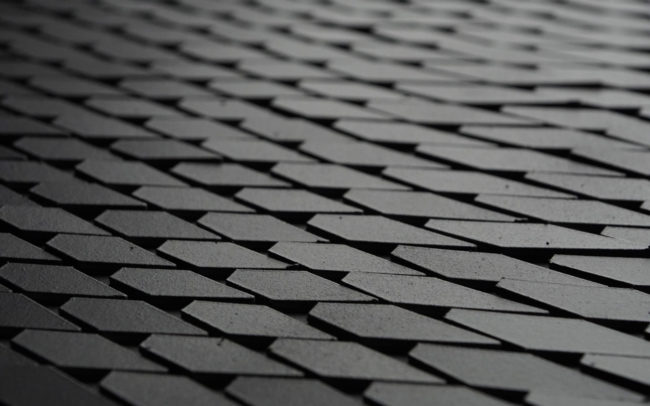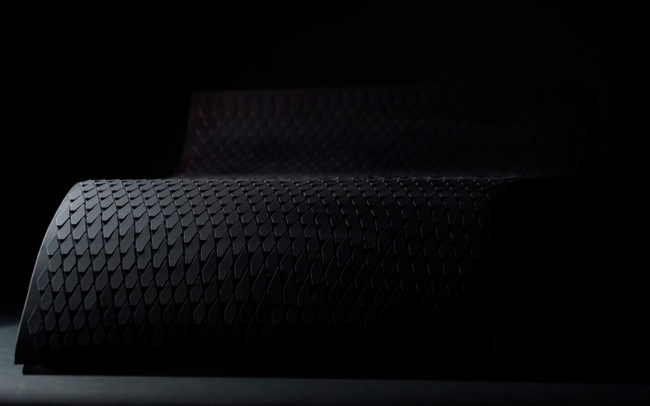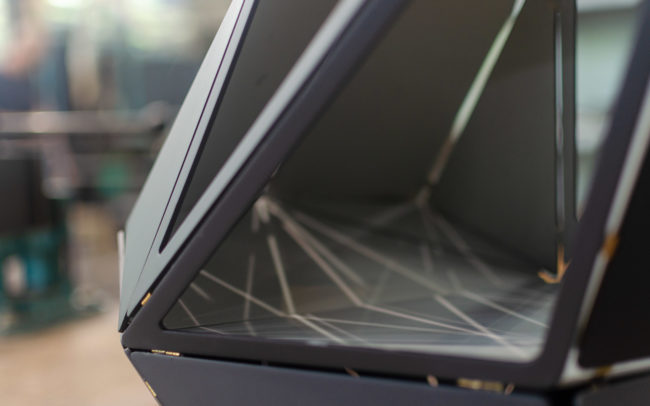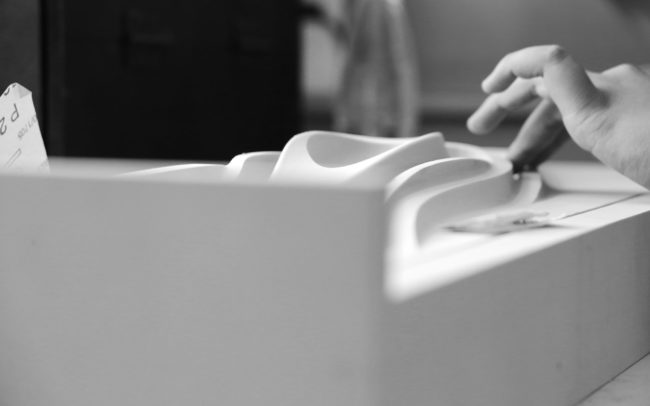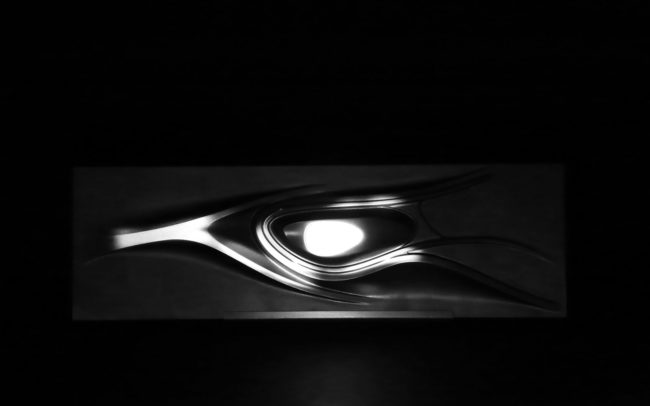towards a living automotive
Anima is the second iteration of the in 2017 initiated collaboration with AUDI. Building upon the experience from the previous project, Concept Breathe, we again investigated into the future of mobility, yet unlike last time the focus was not on designing a seat but to rethink the classical middle console in respect to upcoming (autonomous) driving scenarios. The in total 17 students worked in four groups, each developing their own specific scenario and design approach. Requirements which each group had to adress were functional aspects (e.g. tray or cupholder options), formal expressions (using parametric/ generative processes), technological production (applying digital fabrication techniques), sustainability (e.g. materiality, recycling,…), interaction with and adaptation of the system and embedding the object into a larger narrative context. The course started with an intense two-day workshop at AUDI in Ingolstadt, during which the first ideas and concepts were generated. After this the project was roughly divided into three parts: concept development, design and prototyping, and final realisation.
Alcyon
The popularity growth of autonomous driving changes the relationship between us and our automotives. The way we spend our time inside vehicles could transform them into working spaces, relaxation- or meeting rooms, become friends and interact with us and change the human-machine interaction completely. Alcyon, a design vision that could become reality very soon, is designed for short distance trips. Derived from the latin word alcyoneum (coral), this project’s name is vicarious for any underwater positioned habitat – the sea is a great inspiration for this new approach on the center console regarding its shape and materiality. Alcyon has its own headstrong shape, containing a tabletop and tray fold. It is produced by 3D printing, using a biodegradable filament made from algae. The concept of Alcyon intends for it to be a living organism inside your vehicle combining organic matter and technology. In order to let this become reality, the center console was planted with reindeer lichen (cladonia rangiferina) – an organism consisting of algae and fungi, living in symbiosis without the need for human intervention. Lichen are used as bioindicators to demonstrate a habitable air quality while the algae provides oxygen through photosynthesis, impacting and improving the indoor climate and therefore generating a better working and living environment. Alcyon creates a piece of nature inside the smallest urban space and decelerates everyday life through its haptics, looks and its liveliness both emotionally and visually.
Okura
A car’s interior is a highly individual space, it reflects a driver’s personality and preferences. In the future however the current traffic system might be replaced through a multidimensional, connected and autonomous one. While today a driver is an active part of a large system one identifies with the shift will be more and more towards passive scenarios where the user will become a mere passenger. To compensate for loss of control, alienation and a lack of security the connection between man and machine must be improved. Okura presents an innovative solution, an interactive surface which informs, adapts and reacts. The dynamic scales of the surface move according to behavioral patterns which are known from nature, such as for example the slow and constant movement of the ocean. Okura translates these (e)motions into the interior and thus establishes trust into autonomous driving and artificial intelligence. Moreover the surface can also change its color from black to white in response to a change in temperature, which improves the interior climate. Okura challenges the current relationship of man and machine and proposes an innovative view on the near future.
Mode 2
Autonomous driving allows passengers to use their time for previously impossible activities. Yet new possibilities also create new demands. The focus of this project was to develop a dynamic system which reconfigures the car interior depending on the duration of the route. MODE2 consists of three separate modules, of which one was built prototypically in a 1:1 scale, that can change their position along a central rail in the middle of the car. The elements can thus be used independently, for more classical driving situations, or in unison to allow for centralized passenger communication, where all seats would be facing inwards.
COR
COR is an intelligent learning system which is adapted to the demands of users and remembers their preferences, such as seat position, light, temperature and music. COR responds to different situations with a variety of light impulses. The data of individual users are stored locally to ensure data security. COR can help to create a more comfortable and individual driving experience. The system can, depending on the current situation, mediate safety and vice versa draw attention to potential hazards. the concept of COR can help to make car sharing more individual and attractive.


